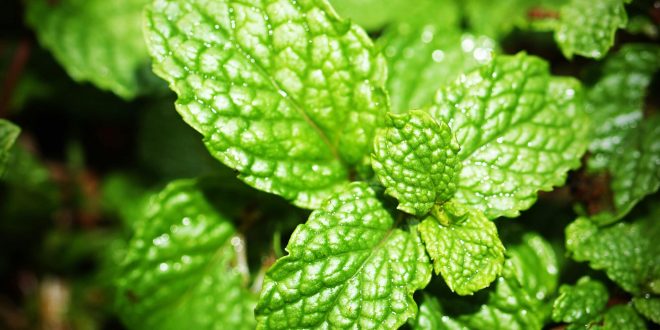By Odunmorayo Oke
06 August 2024 |
10:29 am
Bad breath, or “halitosis,” is an embarrassing problem that has affected us all at some point. It could be present when we first wake up in the morning, or after eating certain foods, or due to poor oral hygiene. But there are plenty of natural, drug-free solutions to fight bad breath and keep your mouth…


Bad breath, or “halitosis,” is an embarrassing problem that has affected us all at some point. It could be present when we first wake up in the morning, or after eating certain foods, or due to poor oral hygiene. But there are plenty of natural, drug-free solutions to fight bad breath and keep your mouth feeling and smelling fresh.
National Fresh Breath Day is the perfect time to explore some effective home remedies for combating halitosis. Many of these solutions use common kitchen ingredients or bring back ancient Ayurvedic practices. Ayurvedic practices are a traditional Indian medicine system.
1. Oil pulling
One of the most well-known natural treatments for bad breath is oil pulling. This Ayurvedic detox technique involves swishing a tablespoon of oil around your mouth for 20 minutes. The oil helps to remove bacteria, freshen breath, and support overall oral health.
There are two main methods of oil pulling. They are, “Graha gandusha” which involves holding the oil in the mouth, and “kavala graha” which involves swishing the oil. Both have been traditionally used in Ayurveda to prevent gingivitis, tooth decay, and bleeding gums.
Additionally, coconut oil is the preferred oil for oil swishing. This is because it contains lauric acid and monolaurin. They have natural antimicrobial compounds that get rid of bacterial growth that contributes to bad breath.
Furthermore, you can use sesame or sunflower oil as well. Simply swish 1 tablespoon of the oil around your mouth for 20 minutes, then spit it out. Do this consistently every morning and night for the best results.
Studies have shown oil pulling is as effective as mouthwash in reducing plaque and symptoms of gingivitis. It’s a simple, natural way to improve your oral hygiene and freshen your breath.
2. Chlorophyll-rich foods
Foods that contain chlorophyll, a green pigment, are not only superfoods, but they’re also excellent natural halitosis treatments. Herbs like parsley, dill, basil and mint are especially high in chlorophyll.
Furthermore, chlorophyll-rich foods contain antioxidants like vitamin C as well as phytonutrients that help neutralise the saliva’s pH. This creates an unsuitable environment for the bacteria that cause bad breath.
Research shows that chlorophyll has strong antibacterial properties that protect the mouth from harmful microbes. They also inhibit the growth of odour-causing bacteria.
You can get a chlorophyll boost by adding the herbs mentioned above to salads, soups and other dishes. You can also sip on beverages like matcha tea, which is rich in chlorophyll.
3. Fermented foods and drinks


Consuming probiotic-rich fermented foods and drinks can significantly improve oral health and freshen your breath. The beneficial bacteria in these foods help prevent the overgrowth of odour-causing microbes.
Fermented dairy products like Greek yogurt, kefir, and amasi contain probiotics. They prevent the buildup of plaque and dental decay, two key contributors to halitosis. Also, fermented vegetables like Korea’s kimchi, as well as kombucha, offer probiotic benefits for your mouth.
4. Raw, crunchy foods


Certain raw, crunchy fruits and vegetables can also help freshen your breath. Studies have found that raw apples, spinach, and parsley were among the most effective natural remedies for garlic breath.
The polyphenols and active enzymes in these raw foods neutralise acidity and reduce the compounds that cause bad breath odour. Their fibrous texture also helps scrub your teeth and tongue.
Chewing on the rind of certain citrus fruits like lemon can also help promote salivary production. This naturally rinses away odour-causing bacteria.
Additionally, uncooked vegetables and fruits high in fiber can also help cleanse toxins from your digestive tract, which can indirectly improve your breath. These include pears, broccoli, berries, peas, and so on.
5. Breath-boosting herbs
There are certain aromatic herbs and spices containing natural compounds that can help combat bad breath. Fennel seeds and cloves, in particular, have antiseptic and carminative (gas-relieving) properties that make them effective breath fresheners.
Fennel seeds help regulate the pH of saliva in the mouth, inhibiting the growth of odor-causing bacteria. To use it you can simply chew on 1/2 teaspoon of fennel seeds after a meal to freshen your breath.
Meanwhile, cloves contain antioxidant-rich essential oils that suppress the growth of pathogenic oral bacteria. You can make a soothing clove mouthwash by putting 1/4 tsp of fresh cloves in one cup of warm water, then gargling and rinsing your mouth with it.
These herbs and spices have been traditionally used in many cultures to aid digestion and improve breath. Some other herbal remedies include rosemary and mint.
6. Peppermint oil
The strong aroma of peppermint oil can improve bad breath. Peppermint contains phenolic compounds as well as the essential oils menthol and menthone, which reduce sulfur compounds that cause odour.
Peppermint oil has been traditionally used in alternative medicine to treat digestive issues like irritable bowel syndrome (IBS). Moreover, improving digestion and reducing inflammation in the body can have indirect benefits for your oral health.
Studies show that using peppermint oil in a herbal mouthwash mixture can improve mouth odour. You can grind fresh peppermint leaves and add them to water for a breath-refreshing drink during the day. Also, try drinking herbal peppermint tea.
READ ALSO: Never Mix These Skincare Ingredients With Retinol
7. Practice basic oral hygiene
Of course, practicing good oral hygiene with regular brushing, flossing and tongue scraping is crucial for keeping your breath fresh. This helps remove the plaque, food particles and bacteria that lead to halitosis.
Ensure to brush your teeth twice a day, and floss daily to get rid of the odour and bacteria between your teeth. Also, change your toothbrush every four months and regularly visit your dentist.
This Guardian Life content is intended for information purposes only and is not a substitute for professional medical advice, diagnosis or treatment. Never ignore professional medical advice in seeking treatment because of something you have read on the Guardian Life website. If you think you may have a medical emergency, immediately call your doctor or dial 112.
 Top Naija News – Nigeria News, Nigerian News & Top Stories Top Naija News – Nigerian Newspapers, Nigerian News. topnaijanews is a daily Nigerian newspaper covering Latest News, Breaking News, Entertainment, Sports, Lifestyle and Politics.
Top Naija News – Nigeria News, Nigerian News & Top Stories Top Naija News – Nigerian Newspapers, Nigerian News. topnaijanews is a daily Nigerian newspaper covering Latest News, Breaking News, Entertainment, Sports, Lifestyle and Politics.




